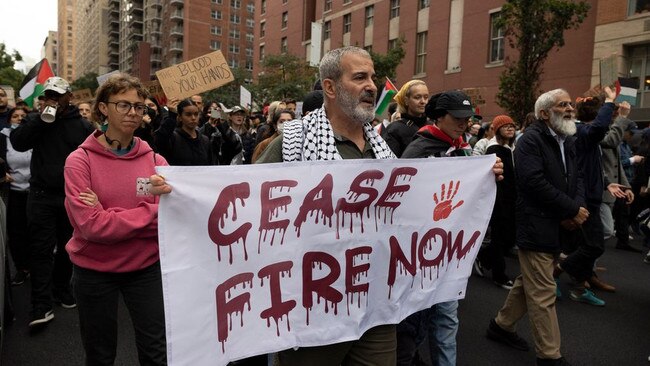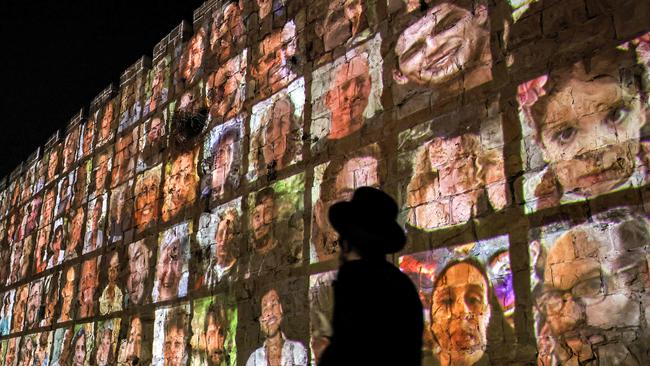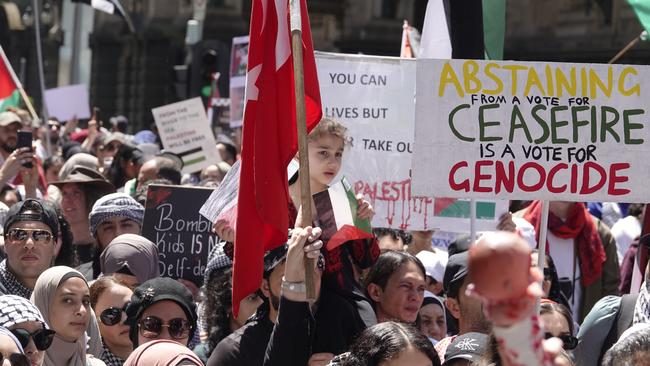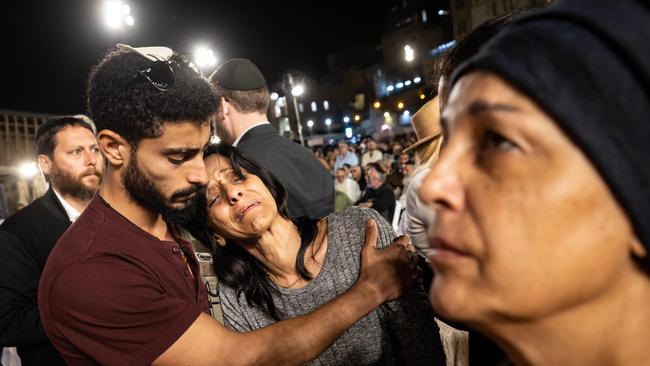Hamas defenders bombard with words to obfuscate and confuse, seed doubt in Israel’s just cause


But in war, as in peace, words can also be used to demoralise and disorient. They can be used – and have been – more deviously by the enemy, and its quill-, microphone- and laptop-carrying enablers and propagandists, to obfuscate and confuse, to seed doubt in a just cause.
The war in the Middle East is a month old but it is producing plenty of the latter. From the streets of American and European cities, television studios, newspaper columns and legislatures, we are being bombarded with rhetoric that seeks to persuade us not to believe what we see, to convince us that right is wrong, justice is tyranny, terrorism is heroism.
I’ve lost count of the number of words that are being manipulated in this way. All kinds of cunning efforts have been used to get us to see that the country whose citizens were wantonly slaughtered on Oct. 7 by an enemy that has sworn to wipe it from the planet is in fact the wicked oppressor. But here are a few of the highlights:

• Ceasefire. This is the most frequently used and superficially persuasive misuse of terminology. “Ceasefire” sounds straightforwardly decent. Who could object to the cessation of hostilities that are killing and wounding thousands?
Nine days after the attack, 13 Democrats in Congress submitted a resolution urging that the Biden administration “immediately call for and facilitate de-escalation and a ceasefire to urgently end the current violence.”
But we know what that would mean: victory for Hamas. It would mean that the terrorist group should be allowed to continue to run a statelet only a few weeks after it has made good on its commitment to attack its neighbour and done so with complete disregard for international law or common decency.
Even after Hamas’s leader helpfully spelled out that, in the event of a ceasefire, the terror group would reinitiate hostilities again and again until it had killed every Jew.

• Genocide. “Joe Biden supported the genocide of the Palestinian people,” says a video posted by Rep. Rashida Tlaib (D., Mich.), in one of many such claims by opponents of Israel. There is something especially malignant about this term to describe Israel’s operation – and those propagating it know that full well. They know its resonance in the history of the Jewish people, and they use it deliberately to equate what happened to the Jews at the hands of the Nazis with a military action today that is justified in self-defence, but which inevitably, tragically results in large numbers of civilian casualties – often because Hamas itself deliberately exposes civilians to harm.
To use this term is a form of Holocaust denial. If you can suggest that what Israel is doing in Gaza is equivalent to what happened in the gas chambers, then you are explicitly reducing the Holocaust to the level of a regrettable by-product of a legitimate military campaign. That apparently so many of our young people – and a disturbing number of elected Democratic officials – seem to believe this is shaming.

• Decolonisation. This is a favourite term of the obfuscators and apologists for terror, partially because it neatly ties up the whole intersectional, Black Lives Matter, critical race theory baloney with what is supposedly happening in the Middle East.
The unidentified Stanford lecturer who singled out Jews in his classroom, made them stand in a corner and identified them as “colonisers” (and was suspended for it) is only the most performative of these dangerous play-actors.
The idea that Israel is a colonist settlement on Arab soil – brilliantly debunked by the historian Simon Sebag Montefiore in the Atlantic – is such ahistorical nonsense that we can understand why it could be tolerated only on the campuses of our most prestigious universities.
• Context. “Palestinian Americans, Dismayed by Violence, Say Historical Context Is Being Overlooked” ran a headline recently in the New York Times. This seeks to place the attacks of Oct. 7 in the context of the wider Palestinian struggle and thereby suggest that beheading babies has some sort of logical moral precursor.
The most notorious use of this concept came from (where else?) the secretary-general of the United Nations, António Guterres. “The attacks by Hamas did not happen in a vacuum,” he said. While he did also condemn the attacks, who is going to help him understand that this attempt to rationalise and contextualise acts of genocidal savagery is dangerous and ultimately futile?
While we are on the subject of words and the UN, the world’s premier talking shop of horrors, I’ll end with perhaps the most arresting example of how words can be manipulated by an enemy to convey a basic falsehood that threatens us all: Last week, Ali Bahreini, Iran’s ambassador to the UN in Geneva, had the distinct honour of chairing the UN Human Rights Council’s Social Forum.
The Wall Street Journal







John F. Kennedy said of Winston Churchill that he “mobilised the English language and sent it into battle.” From Pericles to Abraham Lincoln, words have often been as effective as armaments in shoring up a people’s defences, reinforcing an army’s resolve, or inspiring a unit’s bravery.